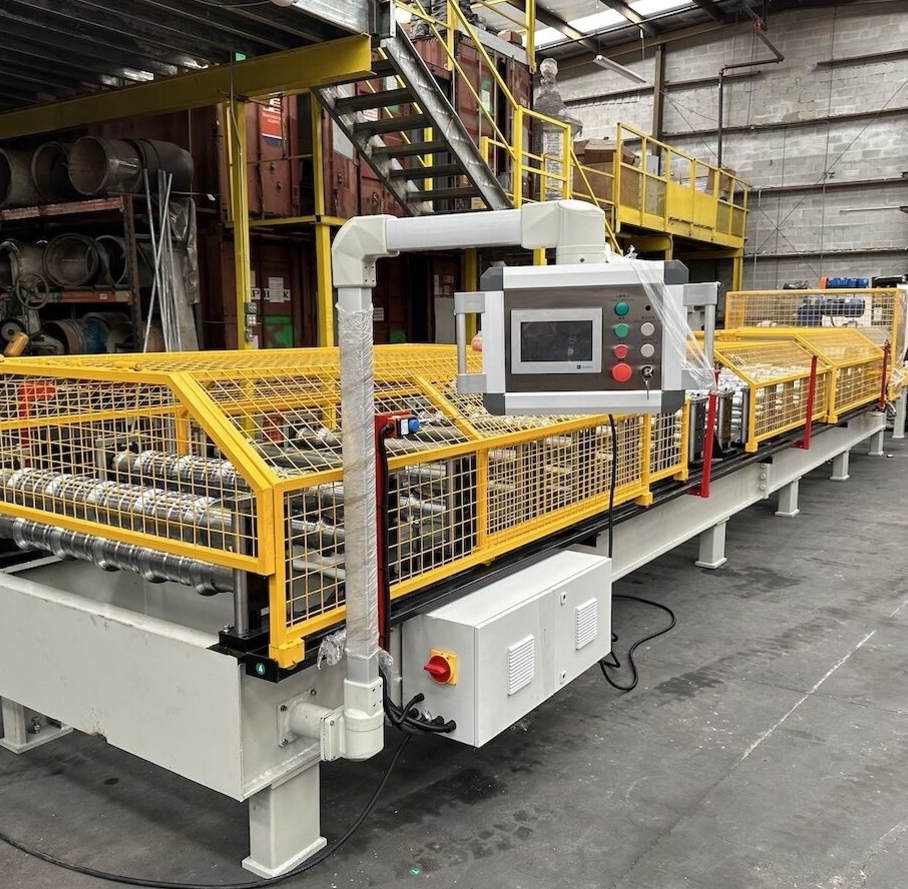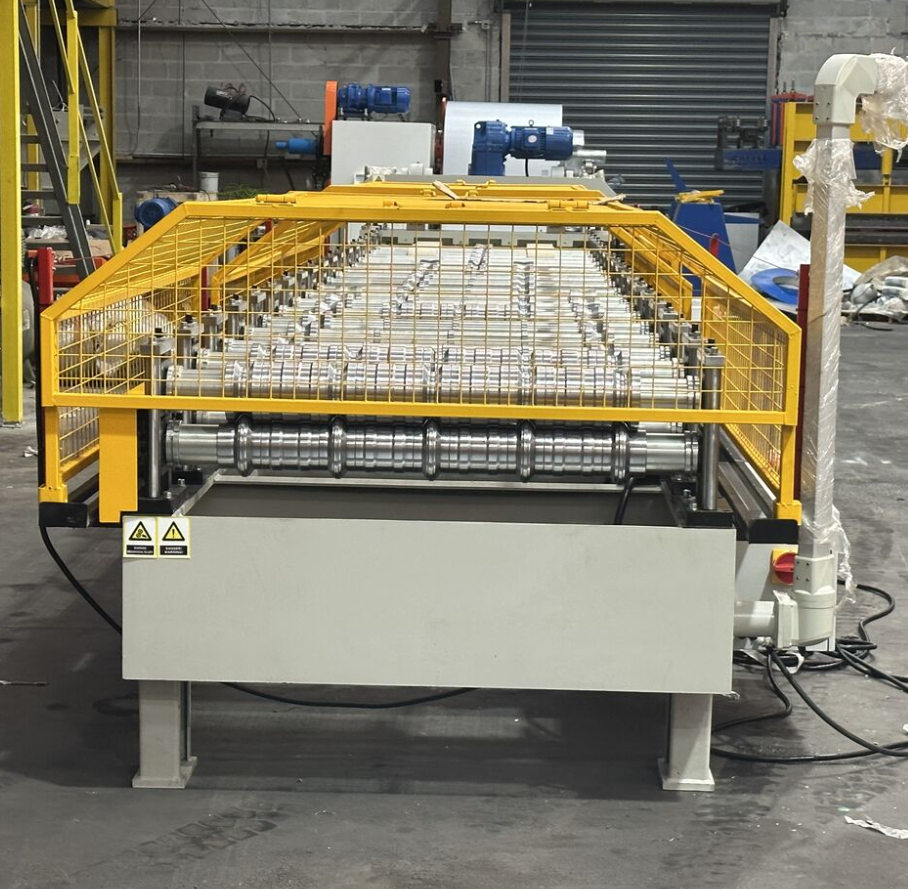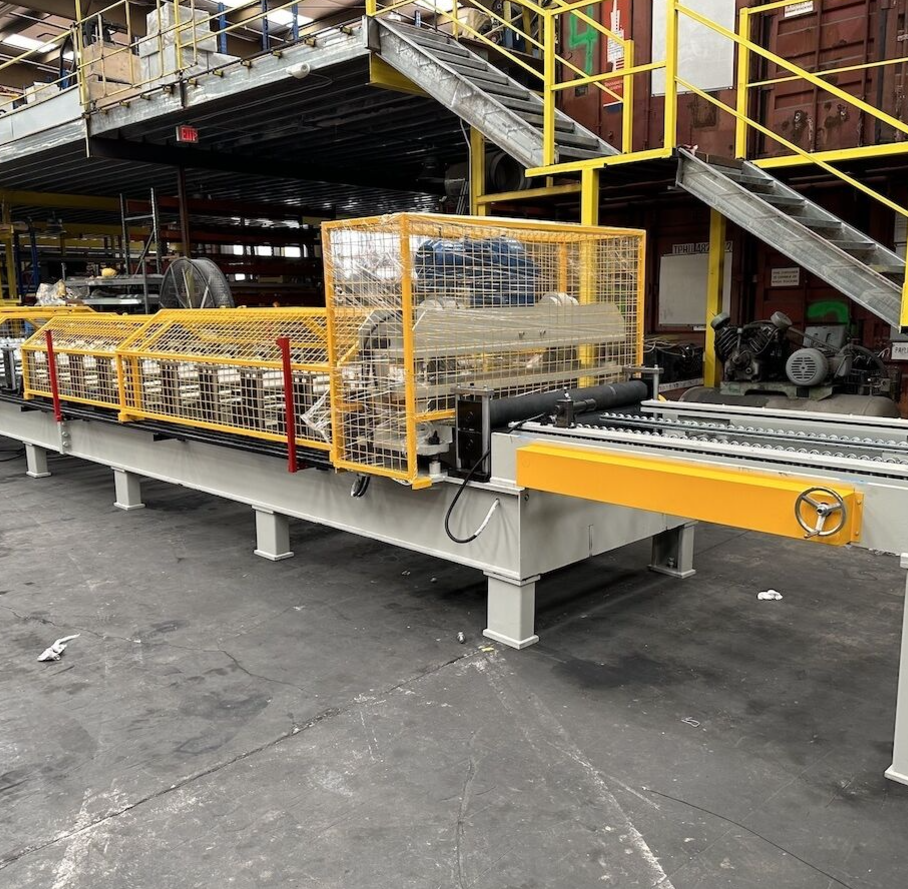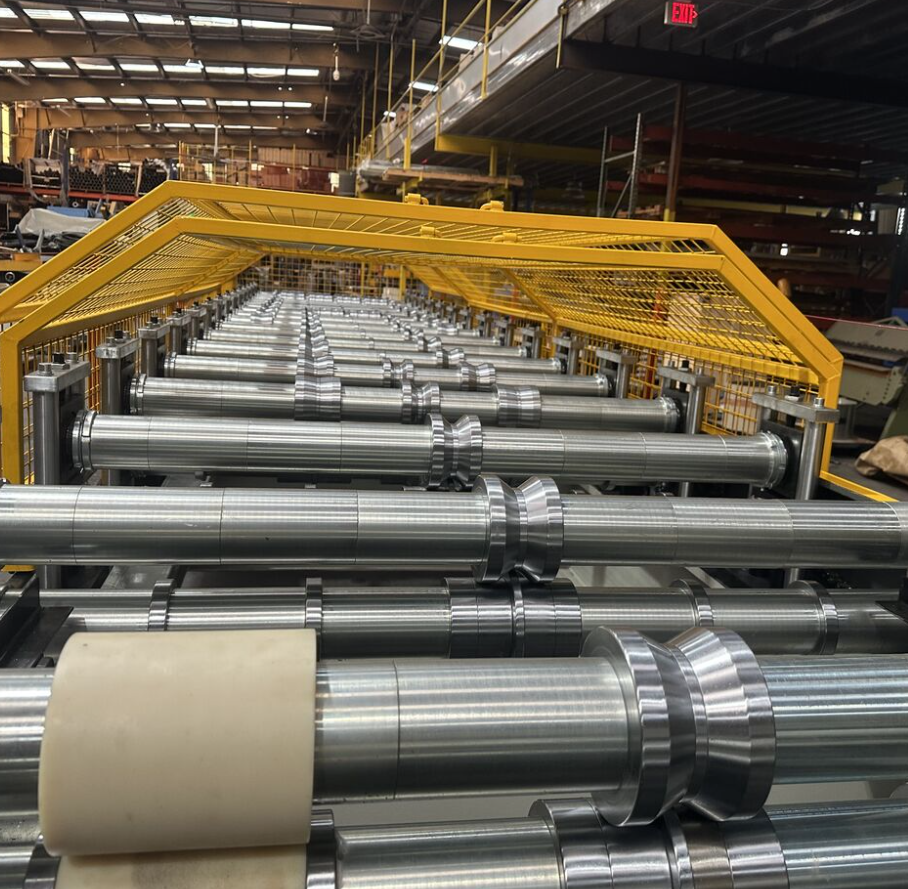To express an interest in this machine please submit the form below.

Not Sure What Machine You Need?
Select Your Profile, We'll Match It
Choose your desired profile drawing, and let Machine Matcher connect you with the best roll forming machine tailored to your needs.
Browse Profiles




Metal roof and siding roll forming machines are indispensable in the construction industry, particularly in regions like Florida where durable, weather-resistant building materials are crucial. These machines are designed to manufacture roofing and siding panels from metal coils with high precision, ensuring consistent quality and reducing material waste.
Whether for residential, commercial, or industrial projects, these machines provide cost-effective solutions by automating the production process, enabling fast and efficient panel creation.
A metal roof and siding roll forming machine typically transforms metal coils into finished panels through a series of precisely engineered rollers. These machines can produce various profiles, including standing seam, corrugated, and ribbed panels, tailored to specific project requirements.
| Feature | Details |
|---|---|
| Roller Material | High-grade chrome-plated steel |
| Machine Speed | Up to 40 m/min |
| Material Thickness | 0.3mm to 1.2mm |
| Material Width | Up to 1250mm |
| Frame Structure | Welded steel frames with reinforced ribs |
| Motor Power | 7.5 kW to 15 kW |
| Cutting System | Hydraulic cutting with adjustable dies |
| Control System | PLC with touch-screen HMI |
| Profile Types | Corrugated, standing seam, ribbed, etc. |
| Additional Features | Automatic stacker, coil car, and decoilers |
Setting up the machine involves:
It is compatible with galvanized steel, aluminum, and coated metal coils, ranging in thickness from 0.3mm to 1.2mm.
Yes, the machine can be customized to produce various profiles such as standing seam, corrugated, and ribbed panels.
A standard machine requires approximately 10m x 3m of space, but this may vary based on machine configuration.
Absolutely. The machine is designed to produce panels that meet Florida's stringent building codes, ensuring durability against hurricanes and extreme weather.
Typically, the machine operates on 380V/50Hz or 220V/60Hz, but configurations can be adapted for local power supplies.
Installation usually takes 3-5 days, including testing and operator training.
Routine maintenance includes lubrication, cleaning, and checking electrical and hydraulic systems for optimal performance.
Copyright 2026 © Machine Matcher.